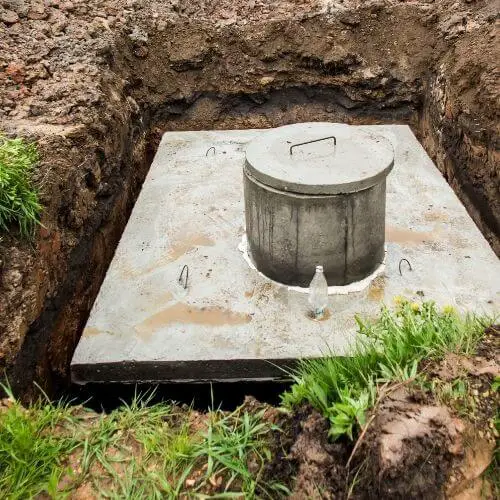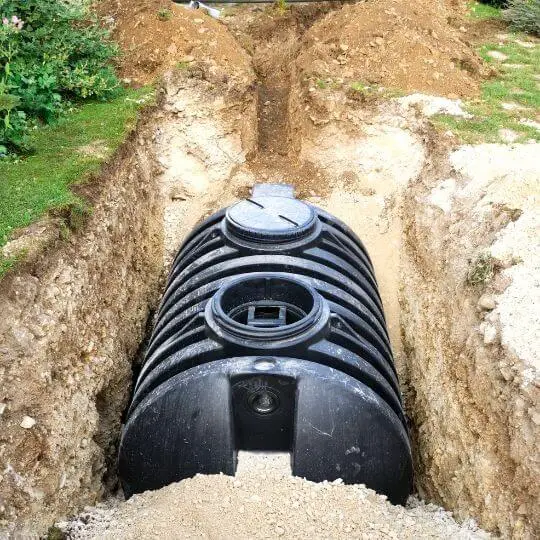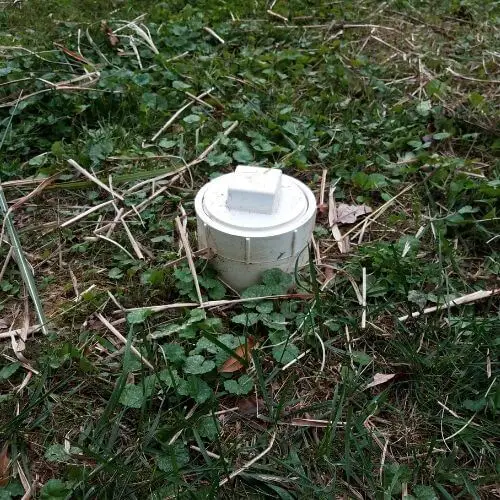Most people encounter septic systems when they want to purchase their first home. And because some do not understand how the system operates, they may not know what they are getting into by buying a house with a septic tank. One of the foremost concerns for such buyers is the question does every house have a septic tank.
So, does every house have a septic tank or system?

No, not every house is served by a septic system. However, every home requires a waste management system to handle domestic wastewater. Waste management systems vary from place to place. Septic and municipal sewer systems are the two most common waste management systems.
Why are some properties served by a septic system?
The waste management system used in a house depends on the location and the existing design within that locality. Your home will be connected to a public sewer system if it is located in a municipality that provides the infrastructure for waste management throughout the city. Town residents are expected to pay a specific fee for maintaining the public sewer system.
For those in rural areas not served by a public sewer system, a private waste disposal system is common. Such systems usually consist of a septic tank and a leach field for purifying the effluent. Owners of personal septic systems are responsible for keeping them operational.
Finding out if your property is served by a septic tank
There are a number of ways to determine if your house has a septic tank or is connected to the municipal sewer system. In case you recently bought an older home, you may be wondering how to determine whether it has a septic system, a public sewer system, or a cesspool. Some of the ways to establish this are outlined below.
- Contact your real estate agent and ask them to search the property records. The waste collection system is a critical component of any home and should be documented appropriately.
- Check with the local government to determine if the house is zoned for public sewer or septic systems.
- Inquire from the previous owners or have your agent contact them to determine if the house has a functioning or decommissioned septic system.
- Look for septic system markers on the property, such as entry points, risers and lids, and septic vents coming out of the ground.
- Ask someone if you live in a neighborhood with a block of houses. Your neighbors will help you clarify the type of sewage system the block employs.
- Consult your property survey or engineering plans to determine the location of the septic system.
The two main sections of septic systems are septic tanks and leach fields. The septic tank gets its sewage through a huge pipe that runs from the house. The sewage separates once it is in the tank, with particles sinking to the bottom and more transparent water rising to the top. The clearer water is then taken to the leach field, where the residual solids are removed, and the water is reintroduced into the earth.
Septic tank vs. sewer costs
Since waste management is critical for the proper functioning of the house, it’s crucial that you understand the cost implications for both septic and public waste management systems before committing to one. This will allow you to make informed decision-making.
How much does a septic system cost?

The cost of a septic system is determined by several factors, including the system’s size, location in the country, tank type, piping type, and terrain. You can spend as little as $2,000 or as much as $20,000 on a septic system [1].
Smaller systems cost between $3,000 and $5,000, while larger residential systems cost between $5,000 and $10,000.
The city or town where you live owns and manages sewers, which are shared wastewater treatment facilities. Wastewater is transported from your residence to a central treatment facility by city-owned pipelines.
Most individuals would rather have a sewer system than a septic system if given the option. However, not all communities have sewer hookups, particularly in rural areas.
How much does a connection to a public sewer cost?
It is costly to connect your home to the public sewer system. As the city or municipality tries to recoup part of the costs of extending sewer lines to your neighborhood, hookup fees can range from $5,000 to more than $20,000.
The local government in some locations mandates homeowners to connect to new sewer lines.
You’ll have to pay a monthly sewer payment and the hookup fees. Because rates differ significantly from one section of the country to the other, you’ll need to check with your local government for cost estimates.
Septic tank property value
You may be wondering if having a septic system on your property affects the market value of your home.
According to the research, having a septic system rather than a regular sewage system does not affect the value of your home, albeit there are several aspects of the septic system that can affect resale. These include the septic system’s condition, safety, and when it was last pumped.
Is it worth buying a house with a septic tank?

There are numerous things you fantasize about when you consider moving from a rental house to your own property. Perhaps you desire to live on a large property where you can have quiet and space. Maybe you dream about all the stars you’ll be able to see or the bothersome neighbors you won’t have to deal with. Unfortunately, when looking for a property in a rural locality, chances are your fantasies won’t include owning a septic tank.
A septic system typically allows you to purchase property with greater land and reap the benefits that come with it. Additional acres might be a significant selling advantage if you’re buying a property as an investment. Ensure you know what maintenance your septic system will require to keep it working.
Buying a House with a Septic System: Some Pointers
Are you interested in buying a property that includes a septic tank but do not know what to look for? Buying a building with a septic system requires considering several factors before committing yourself financially. Taking care of these issues ensures that the house and the septic system are in good working order [3].
- Know the laws in your area
Septic systems are designed to match the style of your home to comply with municipal regulations. This municipal legislation may govern septic tank inspection, maintenance, and replacement. In addition, before you may transfer the title, certain states require a septic tank examination. According to Zillow [4], an inspection may evaluate the system’s integrity, identify if it’s located far enough away from a well (to avoid contamination), and validate the absence of invasive tree roots in the drain field, which could harm the system.
Also, be aware of the system’s age. If you need to replace a system, prices can vary greatly. According to the EPA, a traditional system may cost between $3,000 and $7,000, while an alternative system could cost even more [5].
- Obtain an inspection of the system
To avoid difficulties, septic systems must be monitored and serviced regularly. Pipe integrity, suitable ventilation, and correct drainage must all be checked by inspectors. They’ll look for leaks and clogs, recognizing possible issues of concern and fixing them before they turn into significant problems.
Although Inspections should be performed every three years, many people fail to do so. So if you’re purchasing a home with a septic tank, you should request a copy of the tank’s inspection history.
- Know your system’s specifications
You should know the basic operation of a septic tank before buying a house that has one. For example, the size of the container will influence how often it needs to be drained. In addition, septic tanks may need to be updated every 20-40 years; therefore, you’ll need to know when it was installed. The cost of replacing your tank ranges from $3,000 to $10,000, depending on the size of the tank and where you live.
- Make provisions for routine maintenance.
A septic tank must be inspected, maintained, and drained regularly to avoid problems. Typically, the sludge will need to be pumped out and disposed of every few years. Depending on the size of the tank, this can cost anywhere from $300 to $600.
- What you flush down the drain should be carefully considered
Whether you have a septic system or are connected to a municipal system, a lot of things shouldn’t go down the toilet. However, flushing inappropriate substances down the drain will cause you problems in a septic system.
Hair, dental floss, hygiene items, paint, grease, and oil, can all produce clogs and restrict drainage. Clogs can lead to leaking pipes and sewage backing up into your home. So be careful what you flush down the drain so that you don’t have a much bigger problem.
- Understand what could go wrong
Septic systems can fail for various reasons, especially if they are not properly maintained. For example, leaks, bursts and clogged pipes, and a flooded drain field can cause havoc. Also, if your yard floods and there isn’t enough weight in the septic tank, the tank may move or float, causing the pipe to burst.
The tank might not clear quickly enough – or not at all – if there is too much liquid in the tank or the drain field. Also, using a lot of water daily, such as running a dishwasher, washing machine, or taking long showers/baths, can cause backflow issues.
- Recognize warning signs of trouble
You must be able to see a possible problem before it becomes one. For example, unusual scents, strange plumbing sounds, poor drainage, and backflow into drains indicate that your septic tank needs to be inspected.
Does every house have a septic tank? – Final Word
Living in a rural region necessitates the use of septic systems. So you’ll most certainly need a septic system to get away from the bustle and commotion. Don’t be worried about what this means for you, though. Proper Inspections and regular maintenance can keep your septic system safe and worry-free every few years.
When buying a house with a septic tank, request inspection documents and be aware that septic systems may be subject to local rules and regulations. Before you buy a house, you should get a septic check as part of the standard home inspection.
We recommend getting preapproved now before looking at other properties or making an offer on your current favorite if you haven’t done so already. Making an offer without preapproval can lead to rejection since the seller may be unsure that you have the capacity to obtain the finance necessary for making a down payment on the property.

Michael Davis is a heating & plumbing expert who currently works as independent contractor in SC. He also writes for Plumbertip.
For almost 10 years he worked on various plumbing tasks across South Carolina.



